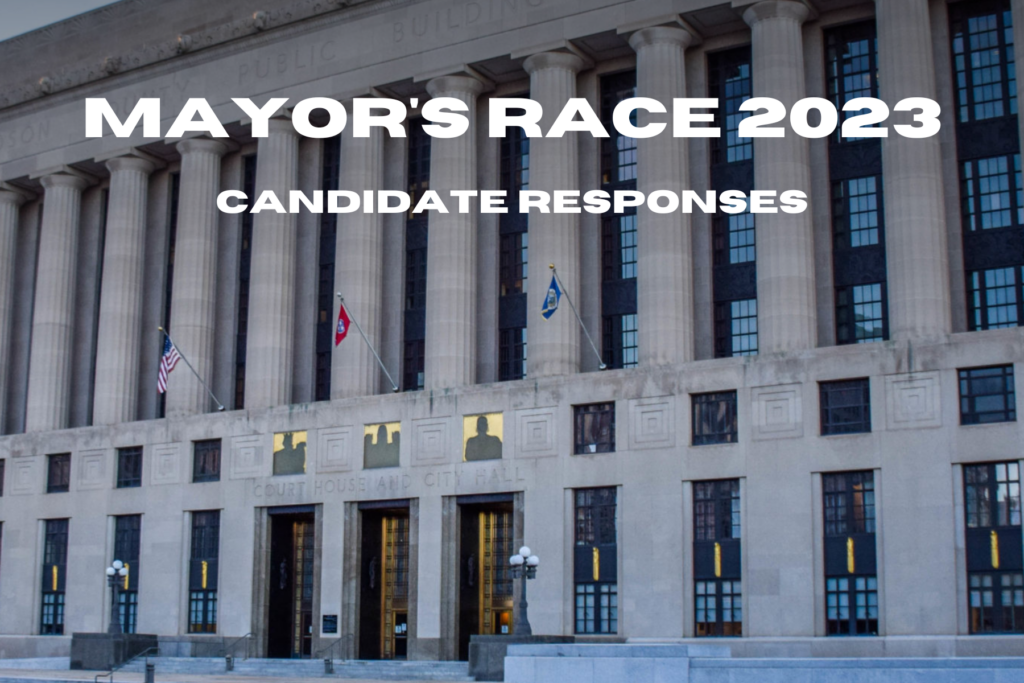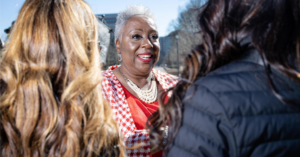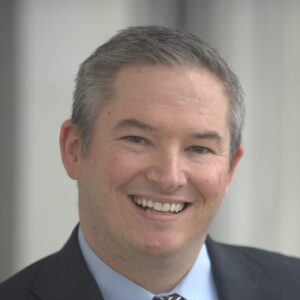
Early balloting opens July 14, as Nashville voters head to the polls to elect the city’s next mayor. Choices are far from limited — with a field that rounds out to 12 candidates.
WPLN News solicited questions from our audience on the issues they are most concerned about. We’ve selected five that we presented to all candidates — on the topics of gun violence, affordable housing, public transportation, the environment and relations with the Tennessee General Assembly.
Climate change continues to impact Tennessee in a myriad of ways. Yet, this past session, the Tennessee General Assembly blocked actions that would reduce greenhouse gas emissions, instead opting to protect fossil fuel interests and developers. Some Nashvillians want to know, on a city-level, how mayoral candidates would approach environmental issues. One WPLN listener asked:
What are your plans to address local environmental issues such as new construction (and handling its waste), improving local recycling facilities, water/sewage upgrades, strengthening tree canopy laws and cleaning up the Cumberland River?
In their responses, many candidates focused on waste, suggesting improvements from “moving the trash down the river” to diverting construction waste to recycling facilities to shutting down the Bordeaux Landfill. Others emphasized policy solutions and leaning on existing plans and programs, like Plan to Play and Clean Water Nashville.
Below are answers provided by the 10 candidates who wrote in response to WPLN News. Candidates were asked to limit their responses to around 200 words and are published in full. Responses are organized alphabetically.
 Courtesy Natisha Brooks
Courtesy Natisha Brooks Natisha Brooks
Brooks is a former educator who operated a home school academy. She ran for congressional seats in Republican primaries in 2020 and 2022 and is a self-described “Christian conservative constitutionalist.” She says:
Nashville has a trash problem. Move the trash down the river on barges to Lake County instead of using trucks that can carry only a few tons. Would like to be like other cities and have an “Improvement Plan” addressing storm water structures for flood plan areas in Davidson County — making sure that our county upgrades equipment for daily operations. Tree canopy is important, therefore as mayor we will ensure that many trees are kept in both a healthy and safe way in Davidson County. Cleaning up the Cumberland River — make sure there are strict penalties for “dumping” by individuals or companies.
 Courtesy Senator Heidi Campbell Facebook
Courtesy Senator Heidi Campbell FacebookHeidi Campbell
Campbell currently represents Tennessee’s 20th district in the state Senate. Earlier this year, she ran for the U.S. House of Representatives in the race for Tennessee’s recently redistricted 5th congressional district. She previously served as the mayor of Oak Hill, a small town in Davidson County that maintains its own municipal government. She says:
We produce more trash and recycle less than most American cities, and our landfills are almost full. We already dump most of our waste in neighboring counties, and it won’t be long before we have to drive hundreds of miles just to get rid of our trash. I recently toured the new Southern Services Construction Waste Sorter, which will divert thousands of tons of construction waste to recycling facilities. I am also talking with Eastman to explore bringing a plastic waste upcycling plant to Davidson County or transporting plastics to their Kingsport, Tennessee facility. Did you know we spend hundreds of thousands of dollars every year to deal with contaminated recycling? Cross-contamination, prohibited materials, and trash bags placed in recycling bins have made filtering out our waste stream an expensive problem. My administration will increase awareness of sustainable waste disposal habits and work to correct recycling procedures.
Extreme weather events have become more frequent in Nashville. Transitioning from reactive to proactive response requires a comprehensive analysis of the interaction between water, power and emergency services. As your mayor, ensuring grid stability, and maintaining clean water and life-saving resources will be the central focus of an energy master plan which will align with capital asset planning to prioritize environmentally sustainable infrastructure and development improvements.
 Courtesy Jim for Nashville Facebook
Courtesy Jim for Nashville FacebookJim Gingrich
Gingrich, the former Chief Operating Officer of Wall Street firm AllianceBernstein, retired to his post in 2020. He is not originally from Tennessee, but was part of the team who worked to move the asset management company’s headquarters to Nashville in 2018. He says:
While serving as COO of AllianceBernstein, I made energy efficiency and green infrastructure a priority when constructing the new office. As Mayor, I’ll continue to prioritize the environment. We can address many of our environmental issues through basic infrastructure. Without taking these steps, we will continue to fall behind, continue to harm the environment, and amass problems we cannot afford to fix. Basic infrastructure improvements to our electric grid, stormwater management, broadband, water services, sewers, and waste management, are necessary and long overdue.
● Modernize our stormwater management to alleviate risks of flash floods.
● Work with Nashville Electric Service and TVA to utilize the latest technology, such as the latest generation of Advanced Metering Infrastructure technology and edge computing devices to manage the power grid.
● Connect businesses to incentives that encourage energy efficiency and ensure future construction be built with the energy grid in mind.
● Expand Metro Public WiFi spaces.
● Utilize sensors and analytics to monitor water levels.
● Utilize the TDEC’s water infrastructure investments to upgrade drinking water systems, wastewater systems, and stormwater infrastructure – especially in communities that have been neglected.
● Bolster waste management infrastructure through increased universal collection, safer disposal and treatment practices, and prioritization of waste recapture.
● Modernize our WeGo fleet with green vehicles.
 Courtesy Sharon Hurt campaign
Courtesy Sharon Hurt campaign Sharon Hurt
At-large Councilmember Sharon Hurt has served on the Metro Council since 2015. She worked with nonprofit Jefferson Street United Merchants Partnerships for 23 years, stepping down from her role as president and CEO in 2021. She says:
Maintaining the environmental cleanliness of the city is essential to ensuring that Nashville is a city for everyday people. With all the new business and construction that Nashville is bringing in, we have to be watchful that we are zoning our city’s neighborhoods for extraction rather than prosperity. The effects of environmental issues, just like transportation issues, disproportionately impact low-income citizens and people of color, making it not just a problem of climate change but a problem of equity too. As mayor, I will fight against those environmental harms and inequities through coalition-building and effective green solutions. To start, I will bolster the Root Nashville program, the partnership between the Mayor’s Office and the Cumberland River Compact to plant more trees in Nashville. To clean up the Cumberland, I will work with grassroots organizations to fund cleanup projects and work with the state to utilize federal and state funds for stream and watershed restoration, green infrastructure, and de-pave programs. And finally, for wastewater treatment and sewage, I will support Metro Water Services and Clean Water Nashville to rehabilitate our water services and ensure clean water for all our citizens. I’m running for mayor to combat the widening inequities in Nashville, and that includes fighting back against environmental inequity in every neighborhood, not just a select few.
 Courtesy Stephanie Johnson campaign
Courtesy Stephanie Johnson campaign Stephanie Johnson
Johnson is the creative director of a skincare company and has also served in the Americorps Vista program and the Nashville Mayor’s Youth Summit Council. In 2019, she ran for the District 7 Metro Council seat. She says:
Right now, Metro is working to get an ordinance passed to handle construction waste. There are still concerns I have about it, as far as how much of the construction waste will actually get recycled, as some of it will still end up in the landfill. We have to have alternative plans to divert the middle waste that does not end up being recycled. I believe Murfreesboro is leading the charge on this by building a partnership with WasteAway to convert 90% of its waste into useable energy. If we see a situation where we are not controlling waste and our dump is filling too fast, then a moratorium on some construction has to be put in place, as it becomes a hazard to our community. I will also support the protection of the Highland Rim. I want to see recycling and composting added at our parks as well, and rain barrels on metro buildings. Making funding our water/sewage upgrades and maintenance a top priority above all else. We also can fund and support community groups already working to clean up the river and plant more trees on top of saving them.
 Courtesy Freddie O'Connell
Courtesy Freddie O'Connell Freddie O’Connell
Councilmember Freddie O’Connell
Metro Councilmember and software architect O’Connell has represented District 19 since 2015. Before that, he chaired Metro Transit Authority’s board and led the Salemtown Neighbors Neighborhood Association and served on various other boards and committees. He says:
I plan to keep doing what I’ve been doing for the past 8 years —focusing on sustainability and resiliency issues on all these fronts. The stronger green building standards I created mean Metro is reducing construction and demolition waste, and we need to ensure that in major public deals like the stadium we’re setting the standard. I’ve worked on advancements in recycling — including moving to twice-a-month curbside collection — and stepped in and did it myself when the city couldn’t. I was a citizen advisor for Clean Water Nashville that eliminated two combined sewer overflows into the Cumberland River while increasing green source reductions. I’ve supported advancements in tree policy that the council has led on for the past several years, and I’ve gone out on multiple tree planting campaigns with Root Nashville. Cities can and should lead on climate issues. That’s why I led on energy policy that has us on track to have 100% renewable energy in Metro buildings, a zero-emission fleet of Metro vehicles and stronger energy standards for buildings than ever before. These policies reduce cost, provide energy security and ensure cleaner air and water while offering climate resiliency. As soon as I take office, we’ll move from a temporary setup that has our water department in charge of trash and recycling to a more permanent solution. And we’ll work on a program that accelerates Metro’s advancement to having all of our local government’s energy needs met by locally supplied solar.
 Shannon Fontaine Courtesy Alice Rolli campaign
Shannon Fontaine Courtesy Alice Rolli campaignAlice Rolli
Alice Rolli
Rolli served as campaign manager for Tennessee Republican Sen. Lamar Alexander during his 2014 reelection bid. She also worked in the Tennessee Department of Economic and Community Development under Gov. Bill Haslam. She says:
The Rolli administration will create a business minded and customer-focused government that is responsive and coordinated in our ability to execute basic city service functions such water, sewer, trash and recycling. We will set acceptable service levels and hold ourselves accountable to the public. I’m a Nashville native and our family has owned a farm on the Cumberland River since 1942 that was the first river-certified farm in the county — so I’m deeply aware of the importance of the Cumberland River and its health and cleanliness to our food and water supply. We support ongoing efforts to educate industry and agriculture to continue to ensure the health of our Cumberland River. In this work my experience at the state and federal level and relationships are critical — and unlike any other candidate in this crowded field. Under Gov. Bill Haslam, I was an Asst. Commissioner at TN-ECD, where the National Flood Insurance Program reported to me — and also my time working for Sen. Lamar Alexander when he was the chair of the Tennessee Valley Authority Caucus. The Rolli administration will consistently bring our federal and state partners to the table in working on issues related to river health and our environment.
 Courtesy Metro Nashville Government
Courtesy Metro Nashville Government Vivian Wilhoite
Wilhoite formerly served on the Metro Council, representing District 29 from 2003-2011. In 2016, she was elected as the Davidson County Property Assessor Race, and was re-elected in 2020. She says:
I will partner with businesses and nonprofits to fully fund the initiatives and plans that have been detailed in both NashvilleNext and Plan to Play. These are plans that outline what needs to be accomplished. Working with environmentalists, we must identify a food waste recycling facility and begin the work. Day one: research into closing the Bordeaux Landfill. I do not want expansion of the landfill to be an option, and we will be transparent about the process. We already have plans drawn out to make environmental justice and security a priority. As mayor of Nashville and Davidson County, it is time to act, to start the critical work ahead.
 Courtesy Matt Wiltshire
Courtesy Matt Wiltshire Matt Wiltshire
Wiltshire previously worked for the Metropolitan Development and Housing Agency. He says:
Nashvillians came together in 2017 to create Plan to Play, a ten-year vision for Metro Parks, greenways, and green space. It outlines the investments needed to take care of what we already have while growing our parks system intentionally, equitably, and sustainably. In the years since, Nashville has lagged behind our peer cities when it comes to investing in our park system. As mayor, I will turn this around and finish what Plan to Play started. I believe there are a few key things we need to accomplish. We must stay focused on sustainability and environmental justice. Climate change is making Nashville hotter. I will keep Metro’s commitment to reducing carbon emissions, generating more solar energy, and planting half a million trees by 2050. We need to expand our parks system and part of that work should include prioritizing the restoration of Fort Negley. Finally, we’ve got to work toward the goal of every Nashvillian being within a ten-minute walk to a park or greenway. I’ll work to expand greenways and will start by accelerating the completion of the City Central Greenway. I will work with the Water Department to continue the investments in strengthening our water, wastewater and stormwater infrastructure. I also will explore opportunities to increase recycling and composting and reduce overall solid waste.
 Courtesy Jeff Yarbro campaign
Courtesy Jeff Yarbro campaign Jeff Yarbro
Yarbro has served as a Democratic state senator since 2014, representing District 21. He spent four years as the Senate minority leader, and also works as an attorney at Bass, Berry & Sims law firm. He says:
Preserving the environment would be a priority in my administration. I think it’s essential for the next mayor to develop innovative policies and partnerships to help address local environmental issues. For example, the proposal to convert Nashville’s East Bank into a vibrant riverfront offers the city a chance to utilize its downtown area along the Cumberland River more effectively. If elected mayor, I would use the East Bank project as an opportunity to work with developers and businesses to support the city’s efforts to clean-up the Cumberland River. Additionally, I would fund resilient infrastructure developments, such as stormwater system upgrades, and heatwave management plans. We must also engage with all stakeholders; impacted communities, nonprofits, businesses and environmental groups, regarding strategies to address environmental issues in Nashville. It is essential that we have community support so we can implement policies to effectively tackle these issues.

